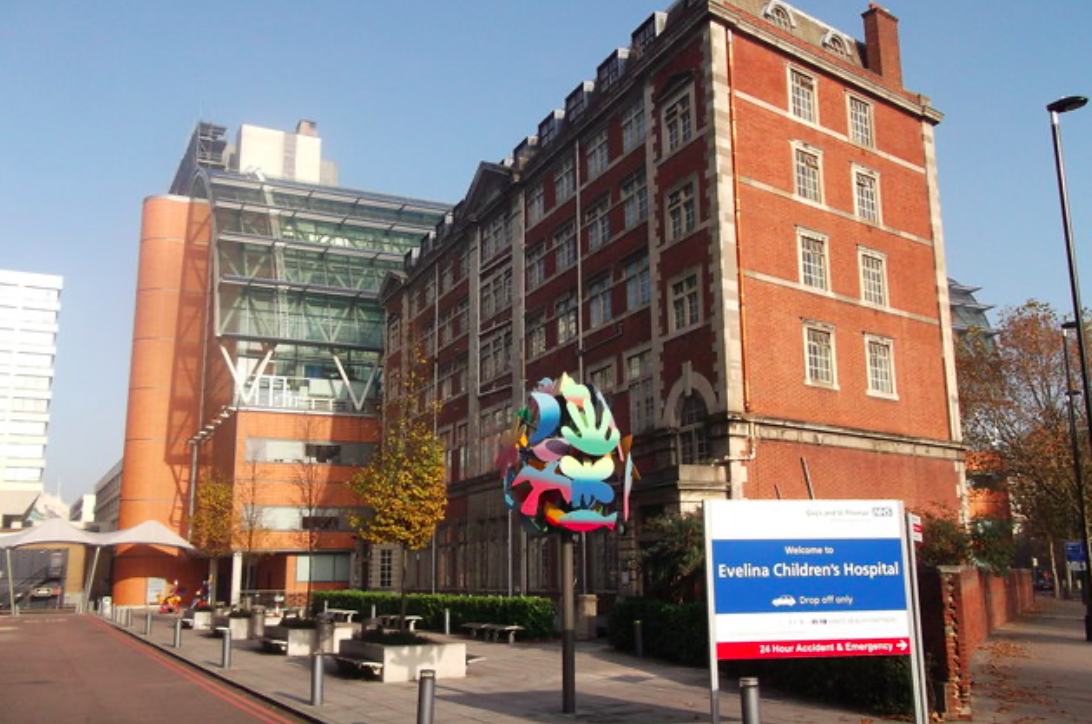Coronavirus: Boy, 14, with no underlying health conditions dies from rare syndrome linked to COVID-19

A teenage boy with no underlying health conditions has died from a Kawasaki-like disease linked to coronavirus.
The 14-year-old was part of a cluster of eight cases treated at the Evelina London Children's Hospital over a 10-day period in April.
He spent six days in intensive care at the Evelina and tested positive for COVID-19 following his death, his medical team reported.
His main symptoms on being admitted to the hospital were a temperature over 40C, diarrhoea, abdominal pain and headache.
Health secretary Matt Hancock said last month that experts are investigating the new syndrome in children "with great urgency" but has stressed it is rare.
The condition is said to be similar to Kawasaki disease, which mainly affects children under the age of five, with symptoms including a high temperature, rashes, swelling and a toxic-shock-style response.
As of last week, the hospital has seen more than 20 children with the illness, according to a report from the Evelina medical team published in the Lancet medical journal.
Latest coronavirus news, updates and advice
Live: Follow all the latest updates from the UK and around the world
Fact-checker: The number of COVID-19 cases in your local area
6 charts and maps that explain how COVID-19 is spreading
The youngest child in the cluster treated at the Evelina was aged four and two others were six.
Two of the children in the cluster, including the boy who died, were obese.
The death comes as it was revealed 100 children in New York were battling symptoms similar to those caused by Kawasaki disease.
State governor Andrew Cuomo said three of those children have since died and did not “present the usual COVID symptoms”.
The report from Evelina said the children in its cluster “were previously fit and well”.
It added: “Six of the children were of Afro-Caribbean descent, and five of the children were boys.”
Medics said all the children had similar symptoms when they were admitted, including "unrelenting fever", "variable rash", conjunctivitis, swelling, pain and "significant gastrointestinal symptoms”.
Most of the children had no significant respiratory symptoms during their time in hospital, although seven were put on a ventilator to stabilise their cardiovascular systems.
All the children survived, apart from the 14-year-old.
The medics wrote: "We suggest that this clinical picture represents a new phenomenon affecting previously asymptomatic children with Sars-CoV-2 (COVID-19) infection manifesting as a hyperinflammatory syndrome with multi-organ involvement similar to Kawasaki disease shock syndrome.”
The team said multiple specialists were needed for any children presenting with the syndrome, including from intensive care, cardiology, infectious diseases, immunology and rheumatology.
At the end of April, Dr Ranj Singh, a TV medic and children's doctor at London's St George's and St Thomas' hospitals, who used to work at the Evelina, said: "What we've seen is these children have had a hyperinflammatory syndrome where they have lots and lots of inflammation around the body.
"Some of their symptoms that they're coming in with are similar to another condition we already see in small children called Kawasaki disease.
"Now, Kawasaki disease is a relatively poorly understood disease at the moment. We don't know what causes it but it can make you quite unwell, and if it isn't treated properly you can have long-term problems with your heart.
"The advice for parents, carers and their children has not changed and I would just reiterate that one of the most common features of this inflammatory syndrome that we're seeing, and also Kawasaki disease, is a persistent unremitting fever.”
He said children are still the group least affected by coronavirus.
Coronavirus: what happened today
Click here to sign up to the latest news, advice and information with our daily Catch-up newsletter

 Yahoo News
Yahoo News 


